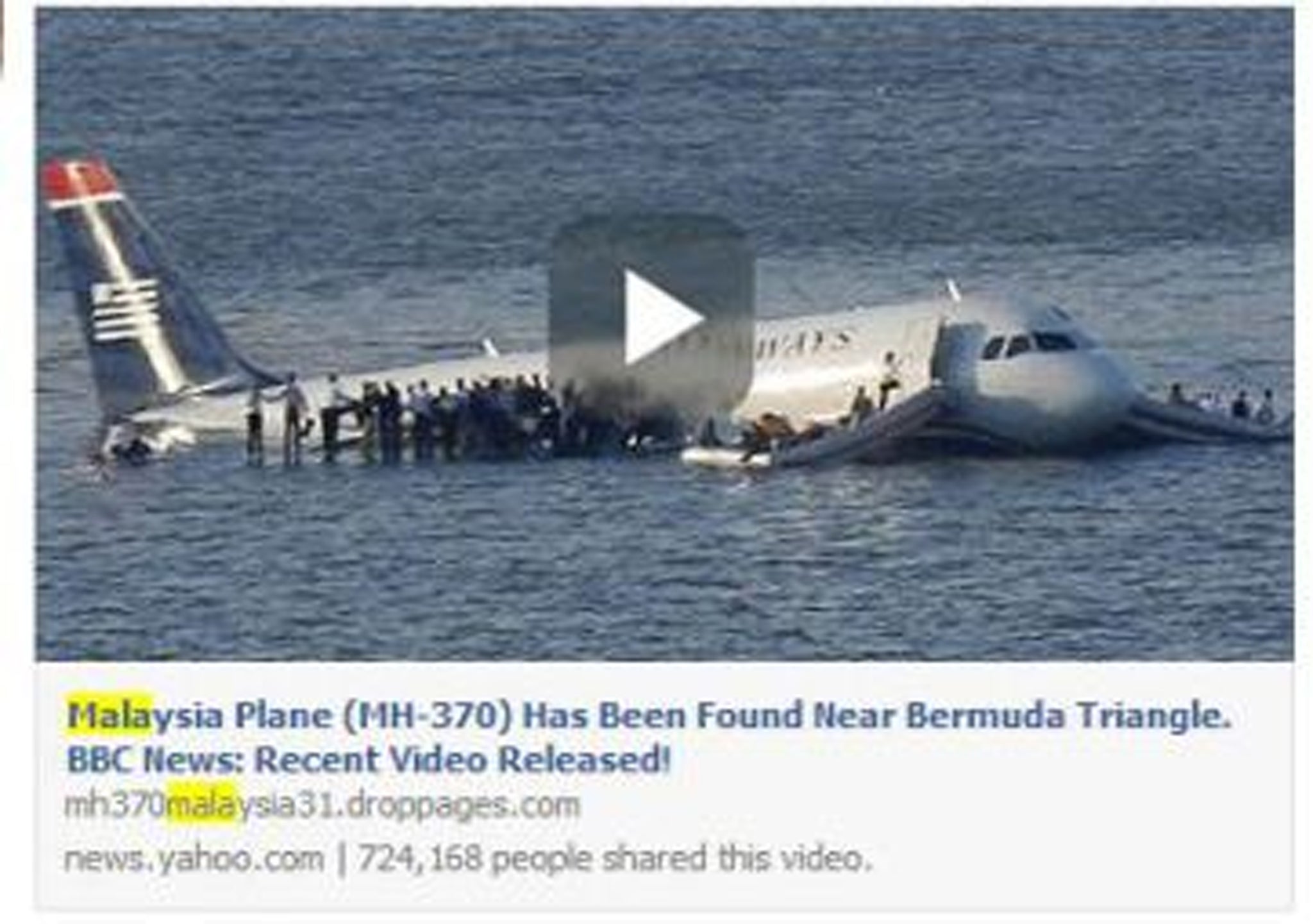'Missing Malaysia Airlines Flight MH370 plane found in Bermuda Triangle!' hackers profiting from viral Facebook links
Videos are links to fake sites or spreading malware that hackers make money from

Viral Facebook posts claiming the missing Malaysia Airlines MH370 flight has been found are pieces of malware and links to fake surveys posted by hackers, who are now profiting from people’s growing interest in the story.
The posts contain videos that look legitimate and claim the plane has been found in various places, from the Bermuda Triangle to having been spotted at sea, with many stating its passengers are “alive” or “saved”.
Many of the links are prefixed with the worlds “Breaking” or “Shocking video” to grab people’s attention.
Chris Boyd, a malware intelligence analyst for Malwarebytes, told Wired.co.uk that his company first saw the links spreading on Twitter, with “a mixture of tweets leading to known sites originally posted to Facebook and a new batch of spamblogs, survey scams [and] imitation news sites”.
Some of the fake video sites ask people to share groups such as “Pray for MH370” on Facebook, while other links take people to realistic looking news sites where users have to click “share” before being able to watch the videos.
The same scams have been seen with previous disaster stories such as the Japanese Tsunami from 2011 and the Philippines earthquake last year. Boyd, who previously tracked scams in relation to these events, said: “They ranged from Malware and 419 scams to fake donation pages and search engine positioning.
“Anything involving a potential disaster is big money for the scammers, as there’s a split between clickers with a penchant for salacious content and those who simply want to know if a relative is OK, or if there’s any more news on a breaking disaster.”
Scammers then profit from the fake surveys that appear when users follow the links in the posts, while users that fill out the surveys will be sharing personal information with third party marketers who have bought the information.
Boyd said popular fake scam pages can be shared “hundreds and thousands of times” and that “there’s big money in it for anybody willing to plumb the depths of human misery.”
Join our commenting forum
Join thought-provoking conversations, follow other Independent readers and see their replies
Comments
Bookmark popover
Removed from bookmarks